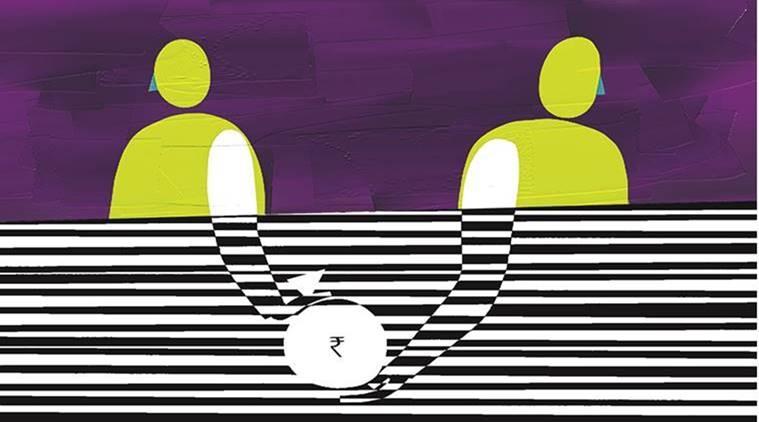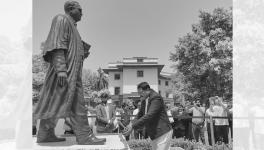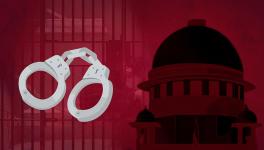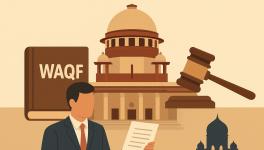Prior Sanction and Condoning Abuse of Power- Prashant Bhushan Challenges Amendments to Anti-Corruption Law

Contending that the 2018 amendments to the Prevention of Corruption Act seek to gut the very heart of the anti-graft law, activist lawyer Prashant Bhushan moved the Supreme Court by way of a writ petition on November 26, upon which a bench comprising Chief Justice of India Ranjan Gogoi and Justice Ajay Rastogi issued notice to the Modi-led Central Government.
The impugned amendments have rendered the Act almost ineffective by completely diluting the scope of some of the original provisions -either by deleting some of the earlier offences and also by introducing new provisions, which in effect would protect corrupt officials and exponentially increase level of corruption, Bhushan has contended.
Third Attempt at Bringing in Prior Sanction
One of such amendments, which would curtail investigation against corrupt officials at the threshold itself, is Section 12 of the Prevention of Corruption (Amendment) Act (PC), 2018. Section 12 of the Amendment Act has introduced Section 17A (1) PC Act, which in effect provides that no investigation or inquiry can be initiated against any public servant in relation to the offences under the PC Act without prior approval from the appointing government.
The amendment to the Prevention of Corruption Act, notified in July this year, seeks to introduce the following provision:
“17A. (1) No police officer shall conduct any enquiry or inquiry or investigation into any offence alleged to have been committed by a public servant under this Act, where the alleged offence is relatable to any recommendation made or decision taken by such public servant in discharge of his official functions or duties, without the previous approval—
(a) in the case of a person who is or was employed, at the time when the offence was alleged to have been committed, in connection with the affairs of the Union of that Government;
(b) in the case of a person who is or was employed, at the time when the offence was alleged to have been committed, in connection with the affairs of a State of that Government;
(c) in the case of any other person, of the authority competent to remove him from his office, at the time when the offence was alleged to have been committed:
Provided that no such approval shall be necessary for cases involving arrest of a person on the spot on the charge of accepting or attempting to accept any undue advantage for himself or for any other person:
Provided further that the concerned authority shall convey its decision under this section within a period of three months, which may, for reasons to be recorded in writing by such authority, be extended by a further period of one month.’’
Also Read: New Anti-Corruption Legislation Dilutes the Original Law
This is the third attempt by the Union of India to introduce a provision which has already been twice held to be unconstitutional by the Supreme Court in two separate judgements- the first time in the Vineet Narain case (1998) and second time when a Constitution bench in the Subramanian Swamy case struck down Section 6A the Delhi Special Police (Establishment ) Act (DSPE) which allowed for prior sanction.
Bhushan, who represented civil society organisation Centre for Public Interest Litigation, contended that the government has tried to take advantage of the fact that one of the main grounds for declaring Section 6A of the DSPE Act unconstitutional was violation of Article 14 because the SC found the classification between senior officers and junior officers for the purpose of providing protection from investigation unreasonable. The same protection has been brought by way of the latest amendment in the PC Act by doing away this classification and providing protection from investigation to all public servants, irrespective of rank.
However, while bringing impugned provision by way of an amendment, the Centre has brazenly ignored the fact that the apex court in both of the earlier judgments had categorically held that if the investigation/inquiry is stalled at the very threshold by not allowing registration of even a FIR, which is necessary to collect prima facie evidence, even to move against the accused for sanction, this would not only impinge the very basis of criminal investigation system but also weaken the fight against the menace of corruption. The amendment by making the obtaining of prior sanction to commence investigation, not only takes away the element of secrecy and surprise but introduced a period of delay during which vital evidences can be manipulated or destroyed. It also gives time to the accused to lobby by employing various means for denial of permission to prosecute.
Also Read: Controversial Bills in the Monsoon Session
Turning a Blind Eye to Abuse of Position
Bhushan’s petition also challenged the crucial amendment made in the PC Act is the deletion and replacement of section 13 of the Act. Section 7 of the Prevention of Corruption (Amendment) Act, 2018, substitutes Section 13 of the previous Act. Section 13(1)(d)(ii) of the unamended Act related to a public servant obtaining for himself or any other person any valuable thing or pecuniary advantage by abuse of office.
Therefore, the abuse of position by a public servant resulting in obtaining anything valuable or pecuniary advantage for any person (including himself) was adequate to prove the offence of criminal misconduct. There was no need to prove bribery or quid pro-quo.
This particular provision was resorted to by the CBI while filing charge sheet in every high-profile mega corruption case. While it was important that the person involved was charged or convicted but it was far more important that the deal/largesse was set aside and the loss to the exchequer reversed in these mega scam cases, involving loss to exchequer of more than lakhs and crores as was the case in the spectrum allotment and coal and iron ore mine allotment cases.
“It is the provision of section 13(1)(d)(ii) that is the very essence of saving the country from the evil of corruption and realisation of Preambular ideals of equality and economic justice. It is the heart of the Prevention of Corruption Act. It has been under attack for more than a decade by the decision makers which includes the political parties, irrespective of their ideologies and stated position of opposing corruption. Part of the bureaucracy too has become collaborative to serve their political masters. It is not surprising that there was bipartisan support for the amendment as the political parties in power exercise discretion which fall foul of the provision section 13(1)(d) while favouring their support group or those who seek favours for a quid pro quo. The amendment is self-serving and clearly in violation of Article 21 of the Constitution”, the petition said.
Get the latest reports & analysis with people's perspective on Protests, movements & deep analytical videos, discussions of the current affairs in your Telegram app. Subscribe to NewsClick's Telegram channel & get Real-Time updates on stories, as they get published on our website.
























